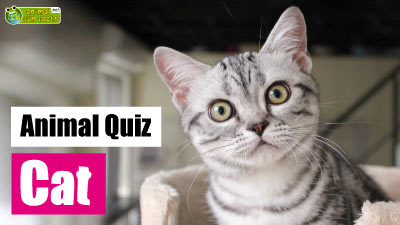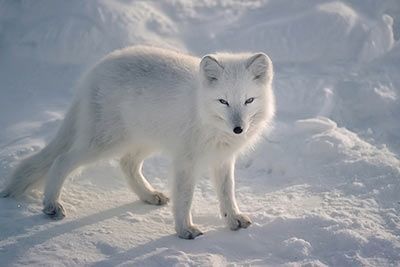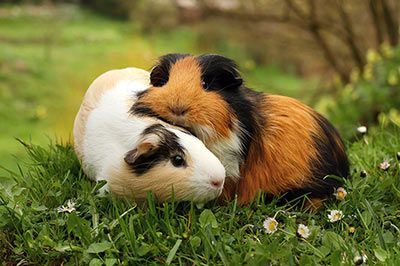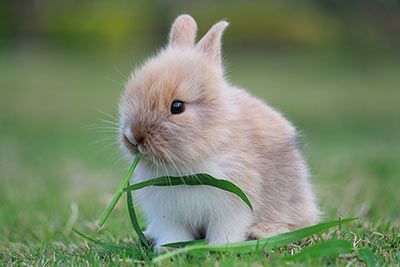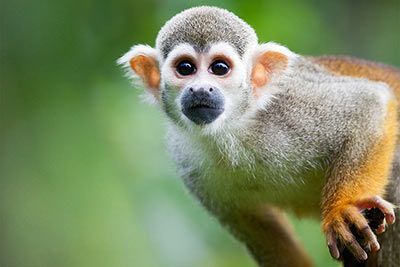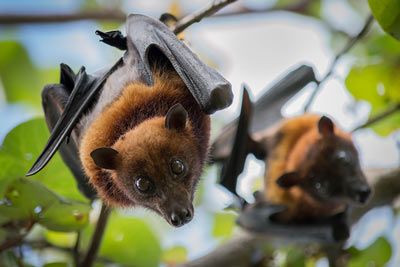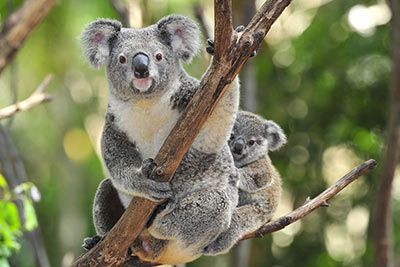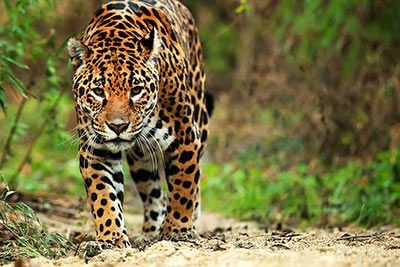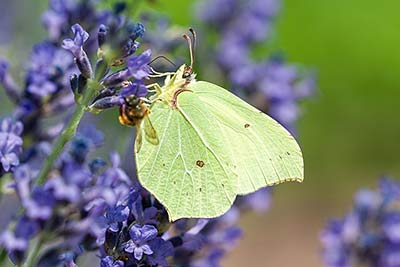Cat
Cat Facts
| Size | 20 in (50 cm) (body length) |
| Speed | Up to 30 mph (48 km/h) |
| Weight | 8.8 lb (4 kg) |
| Lifespan | 12-15 years |
| Food | Mice, rats, birds |
| Predators | - |
| Habitat | Everywhere in the world |
| Order | Carnivore |
| Family | Cats |
| Scientific name | Felis silvestris catus |
| Characteristics | Cats have been kept as pets since 9,500 years |
Main Characteristics
The domestic cat originates from the African wildcat. About 40 cat breeds have developed from this species. In Germany, the cat is the most common pet. You can find the most beautiful cat breeds in our pet section.
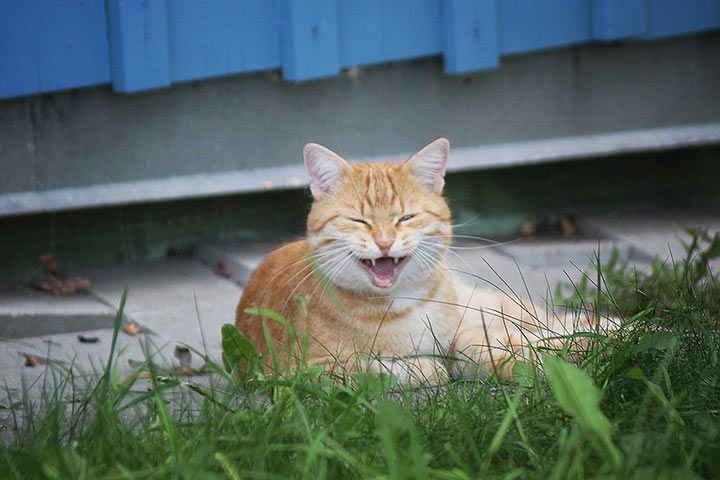
Anatomy and Appearance
Size and Weight
Cats have a body length of about 20 inches (50 cm) and weigh 8.89 pounds (4 kg). The tail is 10-12 inches (25-30 cm) long. Depending on the breed, cats can also be significantly larger, smaller, lighter or heavier.
Colors
Cats can be solid, multicolored, piebald, mackerel, or spotted.
Ears
Cats have 32 muscles in each ear. This allows them to rotate their ears 180 degrees. Humans only have six ear muscles.
Tongue
Cats have a long, rough tongue with hundreds of small, soft “spines“. They're called “papillae” and look like tiny hooks. The spines have many benefits. They don't just help with the taste. When cleaning the fur, they behave like a comb. When drinking, they help to move the water into the mouth.
Toes
There are five toes on the front paws and only four on the hind paws. Cats are toe walkers. That means they walk on their toes. In contrast, there are knuckle-walkers like chimpanzees and sole-walkers like bears and apex-walkers like ungulates.
Bones
Cats have around 230 bones. For comparison: a human being has around 206 bones and a dog has around 320 bones. The python snake has the most bones: it has 600 vertebrae and around 1,800 bones.
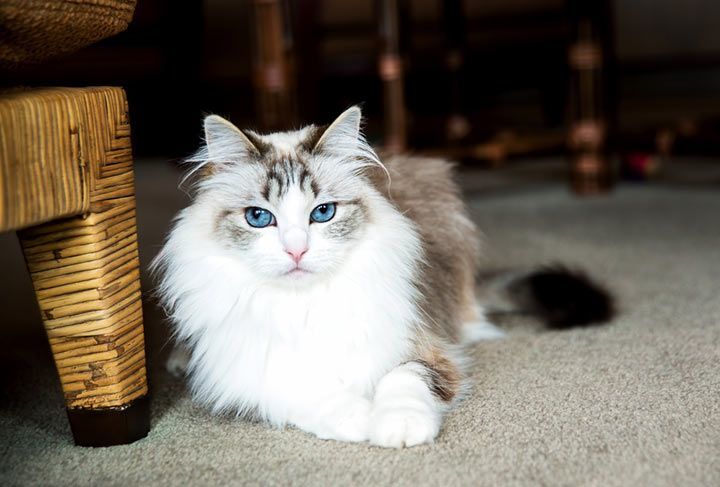
Diet
Cats are carnivores. They feed on small mammals such as mice and rats, but also on birds. Cats shouldn't be given milk to drink because they are lactose intolerant. Lactose refers to the sugar in milk. They get digestive problems from it. Kittens only tolerate their mother's milk for the first four weeks of their lives.
Behavior
Sleeping
Cats sleep 15-16 hours a day. When awake, they eat, play, and hunt.
Grooming
Cats groom themselves with their tongue and their paws. This is how they clean their fur. But they also do it to calm down. For example when they are stressed out or after fighting another animal.
Are There Cats That Like Water?
It is always said that cats do not like water. Or even that they are afraid of it. To understand the reason for this, you have to know that the animals do not have waterproof fur. The water doesn't drip off, they get cold quickly, and they're slower because wet fur is heavier. However, there are breeds that are very fond of water. They even swim. For example the Maine Coon, Turkish Angora, Norwegian Forest Cat, American Shorthair, Turkish Van and Bengal. Big cats like tigers and jaguars also like to swim.
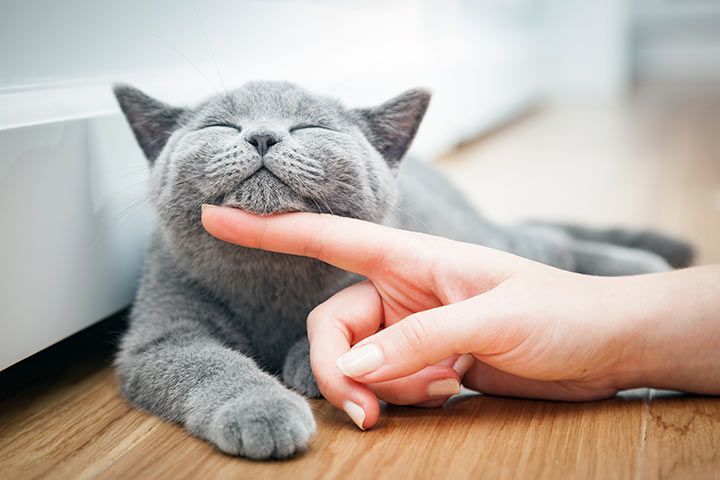
Senses and Abilities
Sense of Hearing
Cats have very fine hearing. Above all, they can hear very high-pitched sounds, e.g. B. from a mouse.
Sense of Sight
Aside from hearing, sight is one of the most important senses in cats. They see six times clearer than humans. And this despite the fact that they are born blind and deaf. Cats also see very well in the dark. This is due to three things: 1. Their pupils can be opened very wide. 2. They have a particularly large number of cones for light-dark vision. 3. They have a special layer behind the retina called "tapetum lucidum", which means "luminous carpet". It reflects the light that falls into the eye and helps the cat to see better at night. This is also the reason why cats' eyes glow at night when they are illuminated.
Sense of Taste
They can't taste "sweet". That being said, too much sugar can trigger serious health problems.
Sense of Touch
It is often said that cats use their whiskers as a kind of distance meter. This is how they would find out if they could fit through a hole. Or if they were too big or too thick for it. But: The whiskers don't become shorter or longer when the animals gain or lose weight. The whiskers also do not get longer with age. The length depends on the breed and the hereditary factors.
Purring
Domestic cats purr when they are comfortable. They produce sound waves that are transmitted through the air. Their range is 20 to 50 Hertz (measurement unit for frequency). They stimulate bone healing, bone growth and also improve bone density. This works in humans, too.
Sounds
Cats don't just meow. They can utter hundreds of sounds, dogs only about ten.
Electricity
Cats can detect vibrations in electric mains.
Intelligence
The mirror test is used to find out whether an animal recognizes itself. However, if a cat looks in a mirror, it doesn't see itself in it, but a fellow cat. The fellow cat is ignored because it doesn't "smell" like a cat. So this form of intelligence test does not work for cats.
Reproduction
After mating, it takes 63-67 days to give birth to 2-6 kittens. At first, they're blind and deaf. They are suckled by their mother for the first four to eight weeks. After 12-15 months they are fully grown.
Enemies and Threats
Lynx and wolves used to be natural enemies. Today, they get into fights with martens now and then. The greatest threat is people - when they drive a car.
Importance for the Ecosystem
Domestic cats used to be very popular because they hunt mice. This is hardly necessary today. Instead, they now mainly hunt wild birds - in Germany up to 200 million a year. This is increasingly a problem for the balance of nature.
Records
The Heaviest Cat
The heaviest domestic cat was the Australian tomcat Himmy with 46.9 pounds (21.3 kg). Guinness World Records decided to stop recording this category to prevent owners from overfeeding their pets.
The Largest Cat
Currently, according to the Guinness Book of World Records, Maine Coon are the largest species of domestic cats with a length of 48.4 inches (123 cm) (including the tail).
Fun Facts
Breeds Without Tail
There are breeds without any tail, such as the Manx cat. Apart from this the only ones without a tail are those that lost it in a fight or by accident.
They Scare Away Black Bears
A domestic cat is able to frighten a black bear, so that it even climbs a tree to escape. Luckily, it does not need the help of a fire brigade in order to get back on the ground again.
Do They Get Sunburned?
Yes, cats can get sunburned. Learn more about that in our article.
Mail Cats
At the beginning of the 19th century, cats helped to deliver letters. In 1897, 37 served as “postmen” in Belgian villages. Finally this concept was abandoned – not because of the dogs, but because the cats were rather unreliable ...
Cat Coffee
Viverrids produce the world’s most expensive coffee. They eat the coffee beans, which then pass through their bowels and get “refined”. Although this sounds rather disgusting, 2.2 pounds (1 kg) of this coffee is sold at about 774 dollars (700 euros). Only about 507 pounds (230 kg) are produced per year.
The Cat Is Related To:
- European Wildcat
Animals in the Same Biome:
- Find Out More:
- Cat Breeds (Pet Section)
Featured Posts:
- Cat Breeds (Pet Section)
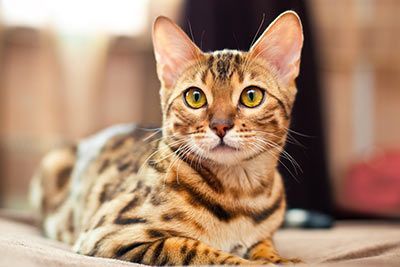
- Cat Quiz
